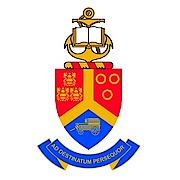Understanding Europe from the Perspective of South Africa
18. February 2010
As a hub of international relations these days, South Africa is in many ways a place for meeting and mediation. Pretoria is home to more diplomatic representations than Washington. In addition, hosting the upcoming World Cup reflects a will to seek dialogue with the rest of the world in attempting to finally leave behind both the long shadow of colonialism as well as the ghosts of apartheid and post-apartheid.
South Africa’s new enthusiasm for membership in the international community also means that it is opening up to the world in its education policies. After the end of apartheid, there was an initially movement in the direction of recovering African traditions. Yet this was to the detriment of study programmes on the languages and cultures of Europe. One consequence was that literature and philology at the universities – including the field of Germanics – were often limited to foreign language education. In addition, European languages are increasingly disappearing from the subjects required in secondary schools.
The University of Pretoria, one of the leading campus-based universities of South Africa, is pursuing a new path. With the new cultural-scientific “M.A. in European Studies,” it is establishing the first programme of its kind in South Africa. One requirement will be study of European languages so that these may become relevant again in helping to redefine European culture in Africa. A central focus in “European Studies” is African-European relations and their historical, social-theoretical, and human-rights dimensions. The course of study should qualify young people for working in many of the European non-governmental organizations (NGOs) in Africa.
To those responsible for the European Studies programme in Konstanz – Ethel Matala de Mazza, Sven Sappelt, and Thomas Weitin – this cooperation is both a special recognition of their work and a logical extension of their thinking. The programme "Studies in European Culture" does not, like other European Studies programmes in Germany, aim to cooperate with countries in the enlarged European Union but specifically seeks to form linkages with non-European partners. Behind this idea the belief that Europe has always been shaped by complex interactions with other world regions. Europe is and was, as shown by the example of South Africa, never an exclusively European affair. The history of globalization, the aftermath of colonialism, contemporary migration, and the theory and practice of intercultural understanding are just a few aspects of such an approach to European Studies. The new degree programme will also be closely integrated with the research work being undertaken in the Konstanz Center of Excellence “Cultural Foundations of Integration”.
Not only South African students will benefit from this cooperation but also students from Konstanz interested in South Africa. To strengthen the cooperation, the DAAD is making scholarships available for those interested in participating in this international exchange programme.
More on this Konstanz course of study can be found at: www.europa-studieren.de
Understanding Europe from the Perspective of South Africa
The innovative master's programme “Studies in European Culture” at the University of Konstanz is the inspiration for establishing a new course of study in European Studies in Pretoria, the capital of South Africa. The leadership of the Konstanz-based programme will work together with its partners in Pretoria to develop degree programmes that will open up new perspectives on the sensitive relations between Europe and South Africa. This forward-looking project is being funded by the German Academic Exchange Service (DAAD).
Facts - Background
The M.A. Programme in "European Studies”
... is being established at the University of Pretoria in 2010 and will be offered in 2012 for the first time. The University is one of the leading campus-based universities in South Africa in research and teaching. The new course of study is modeled upon the Konstanz-based MA programme "Studies in European Culture".
... is the first course of study in South Africa of this kind. It understands critical debate and discussion about Africa and Europe as necessary for understanding historical and present-day relations in a cultural-scientific framework.
... requires knowledge of European languages, thus redefining the significance of European culture in Africa.
... deals with the cultural-scientific dimensions of African-European relations in light of the diverse challenges of our time – in the realms of history, social theory, but also human rights, market economies, and politics.
... wants to train highly qualified graduates who are capable of negotiating the diversity and complexity of African-European relations, for instance, in European non-governmental organisations (NGOs) based in Africa.
The MA Course of Study in "Studies in European Culture"
... was established at the University of Konstanz in the winter semester 2008-09.
... is distinguished by a model that is fundamentally interdisciplinary and
…by international cooperation with non-European universities. Students spend the third of their four semesters of study at one of the non-European partner universities in Argentina, South Africa, India, China, or the United States.
... examines Europe primarily from a cultural-scientific perspective. In addition to exploring the dimensions of European culture, students consider the complex interactions of Europe with other regions of the world -- including the legacy of colonialism, the current state of migration, and intercultural understanding in the context of globalization.
... is part of the Center of Excellence "Cultural Foundations of Integration". Students are introduced to the Center’s research programme from the perspective of European Studies.
... accepts twenty applicants at the beginning of each winter semester (the annual deadline for applications is May 15th).
... qualifies its graduates for a variety of activities in European contexts (such as research and teaching, political organization, international cultural exchange, the media, and much more).
- Files:
 Pretoria-Fakten-Hintergruende.pdf231 Ki
Pretoria-Fakten-Hintergruende.pdf231 Ki
